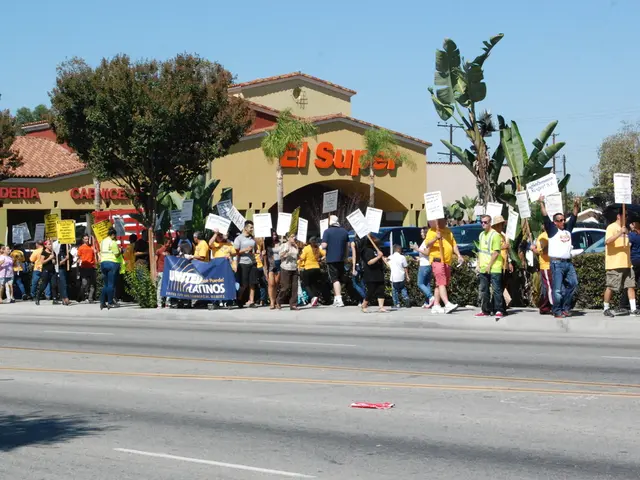European consumers are on the brink of experiencing a significant leap forward in electric vehicle (EV) charging technology, as Chinese automaker BYD prepares to unveil its innovative advancements.
BYD Unveils Plans for Ultra-Fast Charging Network in Europe
Chinese automaker BYD has announced its plans for an ultra-fast charging network, aiming to revolutionize electric vehicle (EV) charging in Europe. The announcement was made at the IAA Mobility show in Munich.
Starting from 2026, BYD plans to install ultra-fast chargers across Europe. These chargers will be capable of delivering more than double the output of today's fastest public chargers, maxing out at 1,000 kW. Each ultra-fast charger will be capable of delivering 1,000 kW of power through a single cable, potentially adding roughly 250 miles of range in just five minutes.
The fast chargers will use the CCS connector, the standard charging plug across Europe. They are expected to primarily serve vehicles from Denza, BYD's premium brand developed in partnership with Mercedes-Benz Group.
The new flagships from BYD, the Han L sedan and Tang L SUV, will be built on the company's new 1,000-volt 'Super E-Platform.' These vehicles feature an updated version of BYD's Blade battery, specifically redesigned to support ultra-fast charging speeds.
BYD's goal with its 1,000-kW chargers is to cut charging times dramatically, shrinking the experience down to a five-minute stop. The charging network will be positioned along major highways and high-traffic corridors in Europe, providing quick, reliable stops for EV drivers, emulating the convenience of gas stations for long-distance travel.
While it's unlikely that BYD's 1,000-kW charging technology will make its way to the U.S. in the near future, the push for faster charging times is global. American EV drivers can hope that advances like this eventually lead to shorter stops and a more seamless driving experience.
For comparison, the 2025 Porsche Taycan Turbo GT can recharge from 5 to 80 percent, adding approximately 200 miles, in 17 minutes. The Hyundai Ioniq 5 and Kia EV9 can recharge from 5 to 80 percent, adding 200 to 220 miles, in 19 to 20 minutes.
The specific rollout details and timelines for the network have yet to be shared by BYD. However, the organization's ambition to transform EV charging is clear, and it's an exciting development for the electric vehicle industry.
Read also:
- Achieving Successful Bonsai Grafting: Selecting the Appropriate Scion and Rootstock for Harmony
- Industrial Embrace of Small Modular Reactors Fueled by Progressive Automation Techniques
- Examining Automakers' Transition to Zero-Emission Autos
- pending European health data sharing framework to be introduced








